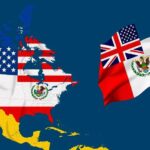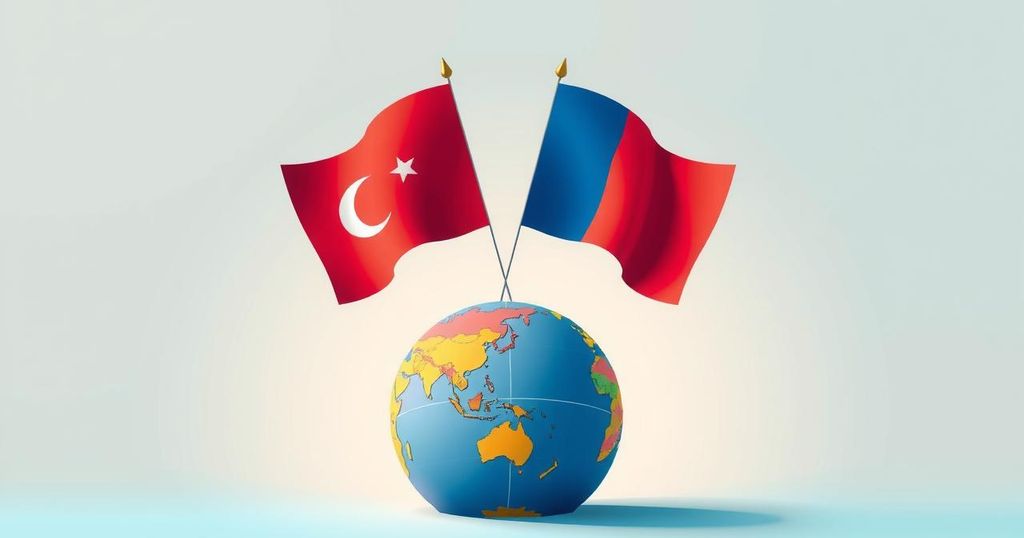Politics
ASIA, BANK OF CANADA, BRAZIL, CANADA, CHINA, CLAUDIA SHEINBAUM, DONALD TRUMP, ECONOMICS, GEOPOLITICS, LU, MARCELO EBRARD, MEXICO, NATIONAL SECURITY, NORTH AMERICA, PHILIPPINES, RICARDO MONREAL, SHE, SOUTH AMERICA, TARIFFS, TR, TRUDEAU, TRUMP, UNITED STATES, US, US-CHINA RELATIONS, WHITE HOUSE
Omar El-Sharif
Global Trade Tensions Escalate as Trump Imposes Tariffs on Key Partners
President Trump has imposed tariffs on imports from Mexico, Canada, and China, prompting swift retaliatory actions from these nations. Mexico’s President and Canada’s Prime Minister announced countermeasures, citing significant economic ramifications for both the US and their respective countries. China condemned the tariffs and indicated plans to challenge them legally, illustrating the broader implications of these trade tensions on global markets.
In a significant escalation of trade tensions, President Donald Trump has imposed substantial tariffs on imports from Mexico, Canada, and China—25 percent on goods from the first two and 10 percent on the latter. This decision has drawn extensive global criticism and led to immediate retaliatory measures from impacted nations.
Following the tariffs, Mexico’s President Claudia Sheinbaum expressed the need for dialogue but stated that her government must respond appropriately to protect national interests. Sheinbaum dismissed allegations linking her government to drug cartels as slanderous. Similarly, Economy Minister Marcelo Ebrard criticized the tariffs as a violation of the US-Mexico-Canada Agreement, emphasizing the need for a united response against such unilateral actions.
In Canada, Prime Minister Justin Trudeau announced reciprocal 25 percent tariffs on various US goods—ranging from alcoholic beverages to fruits—taking effect simultaneously with Trump’s measures. Trudeau urged Americans to recognize the adverse impacts these tariffs would have on jobs and industries within the United States, warning that the consequences would extend beyond Canada’s borders.
China’s response included denunciation of the tariffs and an indication that it would seek redress through the World Trade Organization, alongside potential countermeasures. The Chinese Ministry of Finance stressed the need for the US to engage candidly to resolve issues diplomatically, particularly regarding fentanyl, which they assert is primarily an American problem.
Further reactions emerged from other countries. South Korea began monitoring potential impacts on its economy and companies with ties to Mexico in light of the tariffs. Industry leaders voiced concern over the elevated costs resulting from the tariffs, emphasizing the risks posed to American consumers and businesses alike, particularly within the automotive sector.
The recent imposition of tariffs on Mexico, Canada, and China by President Trump highlights a critical moment in international trade relations. The tariffs, which aim to address issues perceived as national security threats, have sparked immediate retaliation from these countries, revealing the interconnected nature of global trade. The responses from Mexico and Canada particularly underscore their reliance on trade with the US, suggesting potential long-term economic impacts.
In conclusion, President Trump’s tariffs have ignited a wave of criticism and retaliatory measures from Mexico, Canada, and China, highlighting the potential for escalating trade conflicts. Both Mexico and Canada have outlined specific actions to counter these tariffs, while China has expressed its intent to fight the measures legally. This situation reflects the delicate balance of international trade relationships that could affect economies worldwide.
Original Source: www.aljazeera.com








Post Comment